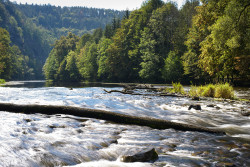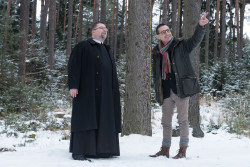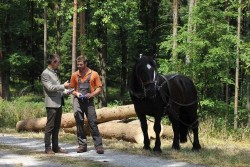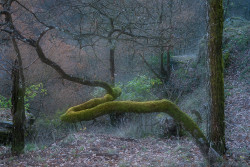Sustainable management of monastical forests
GI Benefit of the month #12: Green Infrastructure and forestry
Each month we introduce a particular benefit of green infrastructure including examples from the project’s case study areas and across Central Europe.
The Altenburg Abbey looks over the Lower Austrian Kamp Valley and is surrounded by wide broad-leaved forests. The Benedictine monastery focuses on the implementation of measures promoting biodiversity, wildlife management and species protection. Around 2,800 hectares of woodlands are managed by natural regeneration. Deadwood is left in the forest providing habitat and food for a variety of species like birds, the natural antagonists of many pests.
Instead of clear felling which usually covers large areas only single trees are harvested – and this is done in the traditional way using horses. The order also invests in adapting to climate change by using regional forest tree species. Spruce forests are being returned to broad-leaved forests as they were 200 years ago.

Lower Austrian Kamp Valley (1) |

Forester and Prior Pater of Altenburg Abbey (2) |

Harvesting trees in the traditional way (3) |

Near-natural forest around Altenburg (4) |
Photos: biorama.eu (Header, photos 1, 2 and 4), Stift Altenburg (3)
Back to MAIN PAGE
